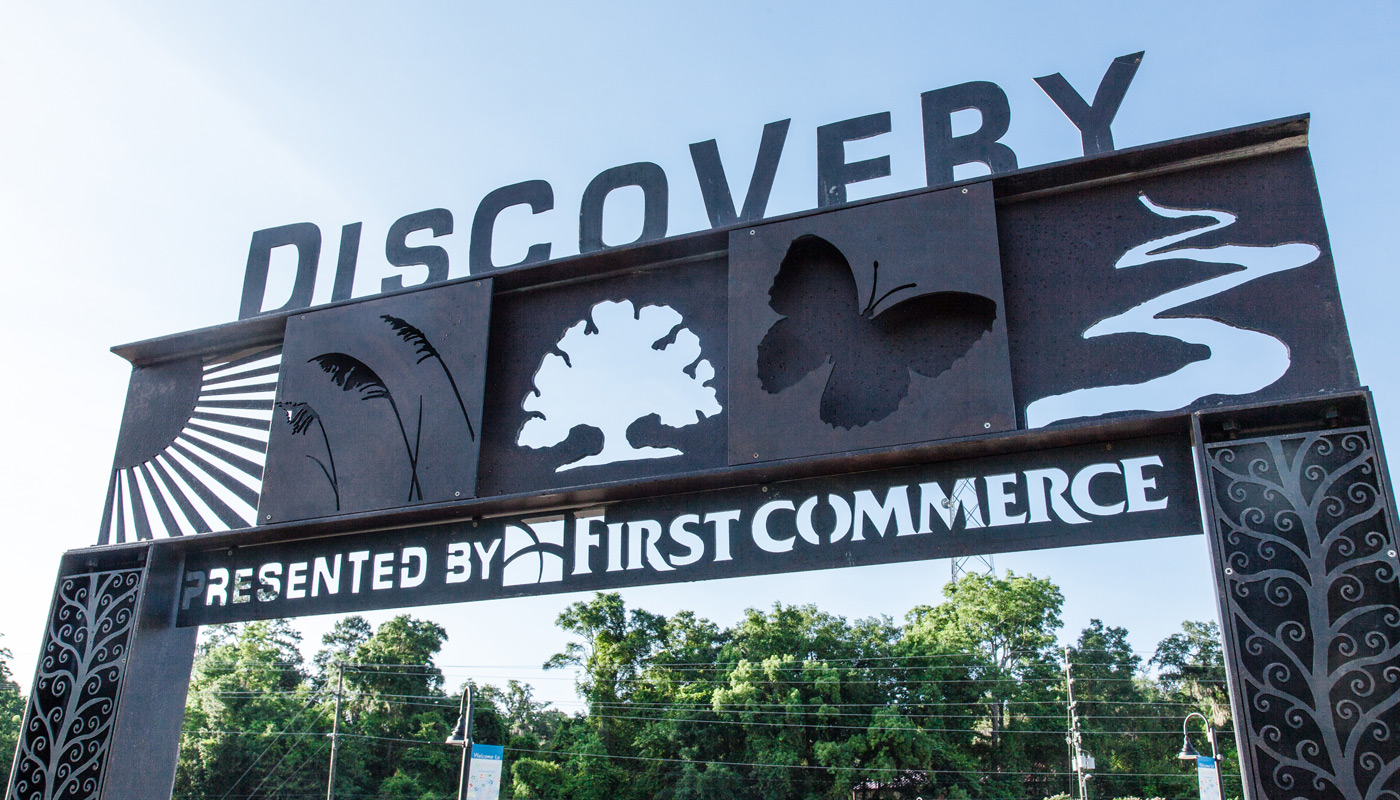KCCI Project Featured in Groundbreaking Design Publication
The Knight Creative Community Institute is proud to be featured in the Assembly: Civic Design Guidelines, a groundbreaking playbook for creating well-designed and well-maintained public spaces as a force for building trust and healing divisions in local communities.
“KCCI’s volunteer-driven project Discovery at Cascades Park is featured in the publication as an example of how providing water in play areas can offer connections to civic life,” said Betsy Couch, executive director for KCCI. “KCCI’s project not only improve the Tallahassee community by creating new places or enhancing places, but each year the Community Catalysts leave the program much more engaged with the local community and equipped with the resources to continue making positive change in Tallahassee.”
Tallahassee’s Discovery at Cascades Park is featured on page 78 of Assembly: Civic Design Guidelines.
The Assembly Guidelines is created by The Center for Active Design and captures the culmination of four years of research and collaboration—with input from 200+ studies, 50+ cities, and dozens of expert advisors—to provide evidence-based design and maintenance strategies for creating cities where people trust each other, have confidence in local institutions, and actively work together to address local priorities.
The Assembly Guidelines empower public, private, and community-based implementers to support this vision for civic connection through the design and maintenance of public spaces. Funded by the John S. and James L. Knight Foundation, the collaborative.
Assembly effort has investigated the role of design in terms of four key outcomes:
1) Civic trust and appreciation
2) Participation in public life
3) Stewardship of the public realm
4) Informed local voting
“The Assembly: Civic Design Guidelines come at a crucial time for our democracy, as Americans are expressing less trust in institutions of all kinds,” says Lilian Coral, Knight Foundation director for national strategy and technology innovation. “The publication essentially offers civic leaders a ‘how to’ for implementing strategies and projects that use public space to inspire positive community transformation and put people at the center of community-building.”
How the Assembly Guidelines can be used
While Assembly’s primary audience is comprised of public sector leaders (including mayors, agency heads, planners and policymakers), the publication serves as a vital resource for anyone who designs, builds, manages, studies or advocates for public space. Practitioners can apply the Assembly Guidelines in a variety of ways: to initiate dialogue about local civic challenges; to test tactical, low-cost design interventions; to shape decision-making around capital investments; and to inform local policies that cultivate more inclusive communities with great public spaces for all.
The Assembly Guidelines are organized into eight easy-to-navigate chapters, based on the dominant themes that emerged from extensive research efforts led by CfAD’s research team based in NYC and UC Berkeley:
- Enhance Community Connections
- Prioritize Maintenance
- Incorporate Nature
- Celebrate Community Identity
- Make Public Spaces Welcoming
- Make Public Spaces Comfortable
- Make Space for Activity
- Foster Local Democracy
The Assembly Guidelines offer a detailed checklist, inspiring stories and data to underscore how communities can tackle their own civic priorities.
A national movement driven by local action The Assembly: Civic Design Guidelines highlight empirical research findings and success stories from diverse communities across the country, creating a compelling foundation to spark national conversations around the importance of civic life. Featured projects demonstrate how evidence-based strategies can be put into practice—from pop-up bike lanes in Macon, GA, to murals that celebrate community heritage in San Jose; from an alleyway converted for public events in Wichita, KS, to community-driven park upgrades in Philadelphia.
The release of this landmark publication is the beginning of a larger call to action. According to Les Bluestone, CfAD’s Board Chair and President of Blue Sea Development Company, “The Assembly Guidelines build upon the legacy of NYC’s pioneering Active Design Guidelines, which not only established the foundation for launching our organization, but transformed how the design and development community understand their role in addressing public health concerns. Assembly
represents a natural extension of CfAD’s work, elevating the importance of civic wellbeing and creating a tool that will inspire the next wave of health-promoting design and development practice.”
CfAD collaborates with diverse communities to implement the research methods and strategies featured in the Assembly Guidelines, capture measurable outcomes and optimize neighborhoods for civic life.
The Center for Active Design is the leading international non-profit organization using design to foster healthy and engaged communities. The Center for Active Design’s mission is to transform design and
development practice to support health, ensuring equitable access to vibrant public and private spaces that support optimal quality of life.
For more information about the Center for Active Design, please visit www.centerforactivedesign.org and follow CfAD on Twitter @active_design.

